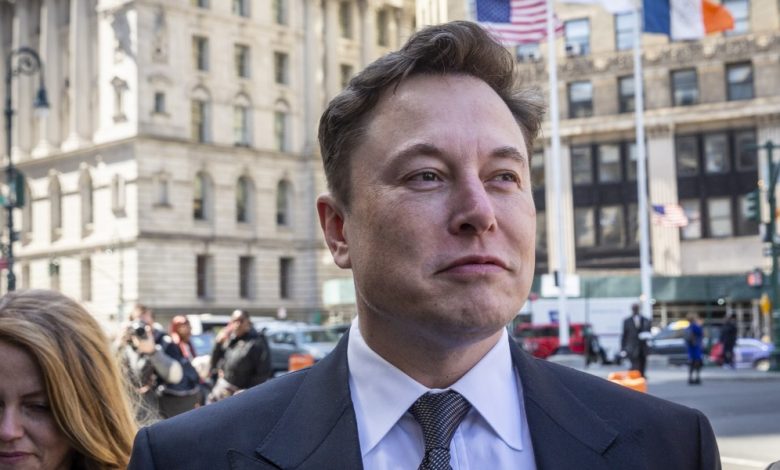Elon Musk takes the stand to confront shareholders who say they lost big money after he falsely tweeted about Tesla’s privatization

Elon Musk took the stand on Friday to defend a 2018 tweet in which he claimed he prepared funding for Tesla’s privatization in a deal that never came close.
The tweet led to a $40 million settlement with securities regulators. It also led to a class action lawsuit alleging he deceived investors and taking him to court on Friday.
The moody billionaire took the witness stand in a dark suit on the third day of a civil trial in San Francisco as his attorney unsuccessfully attempted to relocate to Texas, where Tesla is now headquartered, amid suspicions that the media was covering his tumultuous acquisition of Twitter reported had tainted the jury pool.
The nine-member jury assembled earlier this week will be responsible for deciding whether two tweets Musk posted on August 7, 2018 harmed Tesla shareholders over a 10-day period before Musk admitted that the acquisition, what he imagined was not going to happen.
A month later, Musk resigned as Tesla chairman but remained CEO under the Securities and Exchange Commission settlement without admitting wrongdoing.
In the first of those two tweets from 2018, Musk Statement “Financing secured” for a $72 billion buyout of Tesla at a time when the electric-car maker was still struggling with production and was worth far less than it is now. Musk followed up a few hours later another tweet suggested a deal was imminent.
On Friday, Musk – who bought Twitter for $44 billion last year – said Twitter was the “most democratic way” to communicate with investors.
“Retail investors are very important to me,” he said during questioning by shareholder attorney Nicholas Porritt.
However, he acknowledged that investors can get more detail in a traditional company filing with securities regulators, given the character restrictions set on Twitter.
“I think you can be absolutely honest,” Musk said on Twitter. “But can you be comprehensive? Of course not.”
Even before Musk took the stand, U.S. District Judge Edward Chen said the jury could consider those two tweets false, leaving it up to them to determine whether Musk deliberately deceived investors and caused them losses with his testimony.
Musk has previously claimed he entered the SEC settlement under duress and claimed he secured financial backing for a Tesla buyout in meetings with officials from the Saudi Arabia Public Investment Fund.
The trial over his Tesla tweets comes at a time when he has been focused on Twitter, which he acquired in October after trying to back out of that purchase.
Musk’s stewardship of Twitter — where he has gutted employees and alienated users and advertisers — has proved unpopular with Tesla’s current shareholders, who fear he has spent less time directing the automaker at a time of increased competition. Those concerns contributed to a 65% drop in Tesla stock over the past year that wiped out more than $700 billion in shareholder wealth — far more than the $14 billion wealth swing that rippled between the high and low stock prices of the company Company from August 7 to 17, 2018 period covered by the class action.
Tesla stock has split twice since then, so the $420 buyout price quoted in its 2018 tweet is now worth $28 on an adjusted basis. The company’s shares traded at around $133 on Friday, down from the company’s split-adjusted November 2021 peak of $414.50.
After Musk dropped the idea of a Tesla buyout, the company overcame its manufacturing woes, resulting in a rapid upswing in auto sales that sent its stock skyrocketing and made Musk the richest person on earth until he bought Twitter. Musk fell from the top of the asset list after the stock market backlash over his dealings with Twitter.
Learn how to navigate and build trust in your organization with The Trust Factor, a weekly newsletter exploring what leaders need to succeed. Sign up here.



